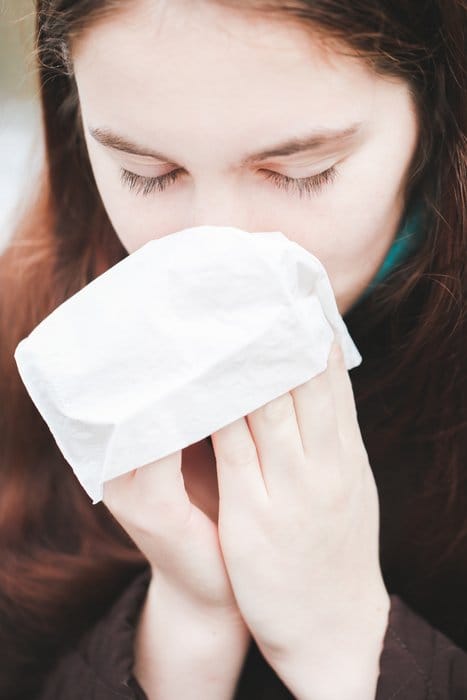Introduction:
Histamine intolerance is a condition that affects a significant number of individuals, causing a wide range of symptoms such as headaches, skin rashes, digestive issues, and respiratory problems. While conventional medicine primarily focuses on antihistamine medications to manage symptoms, naturopathic doctors offer a holistic approach by addressing the root causes and supporting the body’s natural balance. In this blog post, we will explore histamine intolerance from the perspective of a naturopathic doctor, discussing the role of vitamins, minerals, herbs, and lifestyle modifications in managing histamine levels effectively.
Understanding Histamine Intolerance
Histamine is a naturally occurring compound in the body that plays a vital role in various physiological processes, including the immune response, digestion, and neurotransmission. However, in individuals with histamine intolerance, the body has difficulty breaking down and eliminating histamine, leading to an excessive accumulation of this compound.
The Role of Naturopathic Medicine in Histamine Intolerance
Naturopathic medicine emphasizes the use of natural therapies and a holistic approach to support the body’s innate healing abilities. When it comes to histamine intolerance, naturopathic doctors focus on identifying and addressing the underlying imbalances contributing to the condition, rather than merely suppressing symptoms.
Identifying Triggers
Naturopathic doctors recognize the importance of identifying triggers that contribute to histamine intolerance. This may include certain foods (e.g., fermented foods, aged cheese, alcohol), environmental factors (e.g., pollen, dust mites), food sensitivities, and emotional stress. By working closely with patients, naturopaths can help identify individual triggers and develop personalized treatment plans.
Nutritional Support
Specific vitamins and minerals play a crucial role in supporting the body’s ability to break down histamine effectively. Naturopathic doctors often recommend incorporating foods rich in vitamin C, vitamin B6, magnesium, and copper, as they are known to support histamine metabolism. A balanced diet that includes fresh fruits and vegetables, lean proteins, and healthy fats is essential for overall health and reducing histamine levels.
Herbal Remedies for Histamine Intolerance
Herbs have been used for centuries to promote health and balance within the body. Several herbs possess natural antihistamine properties and can help manage histamine intolerance. Some commonly recommended herbs include stinging nettle, butterbur, quercetin, and chamomile. Naturopathic doctors can recommend appropriate herbal supplements based on individual needs and considerations.
Gut Health Optimization
The gut plays a crucial role in histamine metabolism, as a significant portion of histamine breakdown occurs in the gastrointestinal tract. Naturopathic doctors prioritize gut health optimization by addressing any underlying digestive issues, such as leaky gut syndrome or dysbiosis. Probiotics, digestive enzymes, and gut-supportive herbs like aloe vera and slippery elm may be recommended to enhance gut function and reduce histamine levels.
Stress Management and Lifestyle Modifications
Stress can significantly impact histamine levels, as stress hormones can trigger the release of histamine. Naturopathic doctors emphasize the importance of stress management techniques, such as mindfulness meditation, yoga, deep breathing exercises, and adequate sleep. These lifestyle modifications can help reduce stress levels and support overall well-being.
Conclusion:
Histamine intolerance is a complex condition that requires a comprehensive approach for effective management. While conventional antihistamines provide temporary relief, naturopathic medicine offers a holistic and personalized approach to address the underlying imbalances contributing to histamine intolerance. By identifying triggers, optimizing nutrition, incorporating herbal remedies, supporting gut health, and managing stress, naturopathic doctors can help individuals find relief and regain their quality of life.
Disclaimer: This blog post is for informational purposes only and does not constitute medical advice. It is essential to consult with a qualified naturopathic doctor before significantly changing your diet or lifestyle.
Histamine Intolerance and Naturopathic Medicine References
- Maintz, L., & Novak, N. (2007). Histamine and histamine intolerance. The American Journal of Clinical Nutrition, 85(5), 1185-1196.
- Schwelberger, H. G. (2014). Histamine intolerance: a metabolic disease? Inflammation Research, 63(1), 23-31.
- Maintz, L., & Bieber, T. (2006). Novak N. et al. Histamine intolerance in clinical practice. Deutsches Ärzteblatt International, 105(21), 359-363.
- Weng, Z., Zhang, B., Asadi, S., Sismanopoulos, N., Butcher, A., Fu, X., … & Zhang, X. (2012). Quercetin is more effective than cromolyn in blocking human mast cell cytokine release and inhibits contact dermatitis and photosensitivity in humans. PloS one, 7(3), e33805.
- Guo, R., Pittler, M. H., & Ernst, E. (2007). Herbal medicines for the treatment of allergic rhinitis: a systematic review. Annals of Allergy, Asthma & Immunology, 99(6), 483-495.
- Yan, D., & Chen, D. (2016). Pharmacotherapy for allergic rhinitis and conjunctivitis. Clinical Reviews in Allergy & Immunology, 51(3), 303-322.
- Wei, Y., Melkamu, T., & Teuscher, C. (2016). Histamine, histamine receptors, and their role in immune pathology. Clinical and Developmental Immunology, 2016.
- Maintz, L., & Novak, N. (2011). Histamine and histamine intolerance. The American journal of clinical nutrition, 93(5), 997S-1005S.
- Rajput, Y. S., & Saran, A. (2013). Probiotics: Potential immunomodulators in allergic rhinitis. American Journal of Pharmacology and Toxicology, 8(1), 1-7.
- Akhand, A. A., Yamamoto, T., Ueda, S., Nakamura, Y., & Ando, R. (2014). Quercetin suppresses proinflammatory cytokines production through MAP kinases and NF-κB pathway in lipopolysaccharide-stimulated macrophage. Journal of Interferon & Cytokine Research, 34(12), 827-835.
Please note that these references are provided as examples, and further research should be conducted to explore the topic further.
